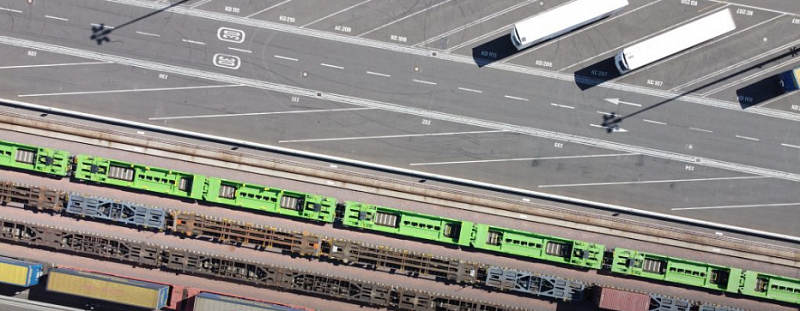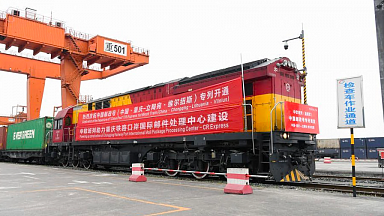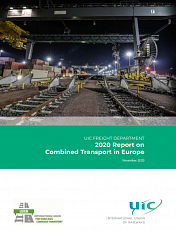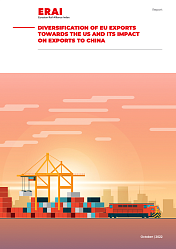The belief in a strong intermodal footprint is now more unshakable than ever. Even though there is much work ahead to establish such a ‘low-carb diet’ for Europe, the first steps have already been made, and future seems promising. This was concluded during the online edition of the summit, which took place on Tuesday 27 October. The speakers engaged in a constructive dialogue, where they shared insights on the main challenges that the intermodal sector faced and continues facing. Among the addressed issues: infrastructures, sustainability and the modal shift to rail.
«Our aim to increase intermodal transport is a doable objective that we can all share», mentioned Magda Kopczynska (Director of DG Move), while summarising the discussion. Indeed, many of the speakers stretched the importance of a shift towards intermodal transportation and how Europe can achieve that in the short term. «Intermodal is not as complex as it sounds», said Ralf-Charley Schultze (President-UIRR), meaning that with certain moves and a shared vision, intermodality is a target that can be achieved smoothly.
Past and present challenges
The core scope of the summit directed towards the challenges that the intermodal sector has faced throughout the years. Regarding the past, there was a mention of problems such as intercontinental connections and oil dependency.
With regards to the present and with an eye to the future, Schultze commented that «the future is definitely intermodal». However, specific points need to be addressed and resolved. For instance, the sector needs to implement sustainable, zero-carbon transport solutions. Besides, there is a need to manage the e-commerce boom, taking place lately, and provide solutions that concern urbanisation and increased population density. Furthermore, labour shortage and geographic connectedness are equally important.
«Intermodal is the sustainable solution»
«Intermodality is one of the main pillars of sustainable strategies», said Adina-Ioana Valean (Commissioner of Transport), in the opening session of the summit. She also pointed out the critical changes that need to be implemented as soon as possible. These include the reduction of distances in road transport, digitisation, more investments in terminal infrastructure, and modernisation of the rules in road pricing. On the same tone, Clemens Först ( CEO of Rail Cargo Group) stated that the intermodal sector needs «highly performing infrastructure and fair economic conditions» to develop even more in the future. Livio Ambrogio (President-Ambrogio Intermodal) supported the same point.
Another need that got highlighted during the discussion was that of a standard European policy that will not be discarded by national-scale policies. Specifically, as Peter Kiss (CEO of Metrans) said, «it is necessary to put down one strategy for everyone». In this way, the shift to intermodal transportation will require less effort and will provide the needed space for a change from trail to rail services. Finally, speakers shared the idea that the implementation of solutions could be more effective if first tried in small and region-scale initiatives.





